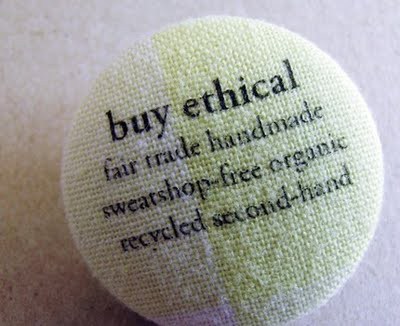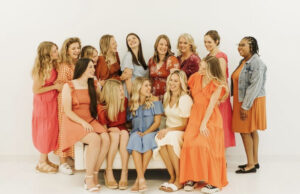The global fashion industry has problems with human rights abuses, pollution and waste, and although media continues to draw attention to these issues, many Oklahoma Christian University students remain ignorant or apathetic towards what clothes they purchase and wear.
Almost six years ago, the Rana Plaza disaster in Bangladesh and subsequent media coverage drew international attention to working conditions in the apparel industry. The eight-story Rana Plaza retail and apparel manufacturing complex collapsed on April 24, 2013, injuring 2,500 people and killing more than 1,100. The New York Times described it as “the deadliest garment industry accident in modern history.”
After a month of media coverage, international fashion brands who source in Bangladesh announced two five-year compliancy agreements, signed by companies including American Eagle, H&M, Walmart, Gap, Target and parent companies of Zara and Saks Fifth Avenue. The Center for Global Worker’s Rights said 97,000 hazards were repaired in 1,600 factories, and 900 factories were shut down by the government for not meeting compliance standards.
Although the Rana Plaza disaster sparked improvements, the New York Times points out that sweatshops still exist and do not always operate under excellent conditions. A new report written by Siddharth Kara from the University of California, Berkeley, “Tainted Garments,” shows how many Western fashion brands rely on exploited home workers in India.
“Due to the lack of transparency and the informal nature of home-based work, wages are almost always suppressed, conditions can be harsh and hazardous, and the worker has virtually no avenue to seek redress for abusive or unfair conditions,” the report said.
In addition to the 12.9 million workers in factories in India, the report said the sector employs millions more in informal, home-based settings. The U.S. and the European Union receive almost half of India’s total apparel exports. Although Kara said many of the brands sourcing garments from India promote decent conditions in the factories, they “largely have inadequate visibility into sub-contracted work from their suppliers to home-based workers.” Almost all the home-based workers are women and girls who scarcely make $0.15 per hour.
The report does not name the brands involved, although Kara said they are largely household names, to discourage brands from pulling out of contracts or limiting economic opportunity.
“It must be stressed that apparel brands that source garments from India are providing vital employment for marginalized women and girls that often have no other options for earning an income,” Kara said. “Rather than shift production or cut off suppliers, brands should acknowledge and assess home-based garment work in their supply chains in order to improve working conditions.”
According to a poll on Twitter, 83 percent of 66 participants in the Oklahoma Christian community said they never research a clothing label for environmental or social performance before buying their product. Fifteen percent of participants said they sometimes research a brand. Only one participant said they always research a label before buying.
https://twitter.com/OCTalon/status/1097986019222261760
Senior Katheryn Pierce said she does not believe many college students think about where their clothes come from or who made them.
“We buy clothes for how they look and what’s in style,” Pierce said. “It’s also more convenient for people to just go to the mall and shop around than to try and find brands that support the right things and avoid the ones who don’t. Besides, I’m not sure you can ever really know if clothing companies are doing everything ethically.”
Freshman Anna Johnson said she thinks part of the reason most people, even those aware of worker exploitation, do not buy from ethical labels is because they are more expensive than other brands.
“Clothing companies in particular that are transparent in their fair-trade are often priced higher,” Johnson said. “[People] assume [worker exploitation in the fashion industry] is so pervasive that no matter what, their impact will be very small. And if all that is not true, I have seen very few blatantly ethical brands with popular styles.”
Johnson said she has considered where her clothes come from and is troubled by the often “deplorable” conditions for workers in other countries.
“Instead [of buying directly from brand stores], I choose to thrift the majority of my clothes,” Johnson said. “That way, I am not feeding into the production cycle, nor directly giving my money to unethical companies.”
Pierce said while she had heard of exploited workers in factories, she was not aware of home workers in India or the Rana Plaza disaster.
“I hate that there are people who work in bad environments and are underpaid, and I think raising awareness on this topic is important so that things can change,” Pierce said. “I hope we can make a difference in working conditions without taking jobs away from those who depend on them.”
Exploited workers is only one of the problems “fast fashion” perpetuates, according to Good on You, a source which rates brands on how good or ethical they are to the planet, people and animals. Because clothes are produced at a fast rate to satisfy consumers, people dispose of more garments and create a large amount of textile waste. Donating, thrifting or recycling clothes can help alleviate this problem.
According to a Twitter poll, 79 percent of 62 Oklahoma Christian participants said they donate their clothes when they do not want them anymore.



















Hey, Madisen. This is a great piece. I feel like I talk all the time about how hard it can seem, but shouldn’t, for customers to shop their values by being able to identify their clothes as ethically produced. We work with clothing companies to create affordable custom clothing labels to be able to market the ethical qualities of their clothing line.